Have you ever been in a situation where you had a fishing rod and no place to put it? Maybe you’ve got a neat rod you want to store or maybe you need ideas on how to store multiples. It doesn’t have to be a drag anymore.
Rods are an investment so you'll want to do your best to maintain them. Whether storing at home or transporting it's important to keep your rod protected if they are not in use. However, with the right equipment, moving and storing your rod is easy!
In this article, we have listed some of the best practices and tips to help you out if you're looking for the best way to store a fishing rod.
Table of Contents
Benefits Of Storing A Fishing Rod - Why You Should Store
Storing a fishing rod is something that’ll involve you putting in some hard work. Now, some of us might need motivation or reason to store a fishing rod, this section is going to give you a brief summary of why you should store your fishing rod.
1. Less Likely To Break
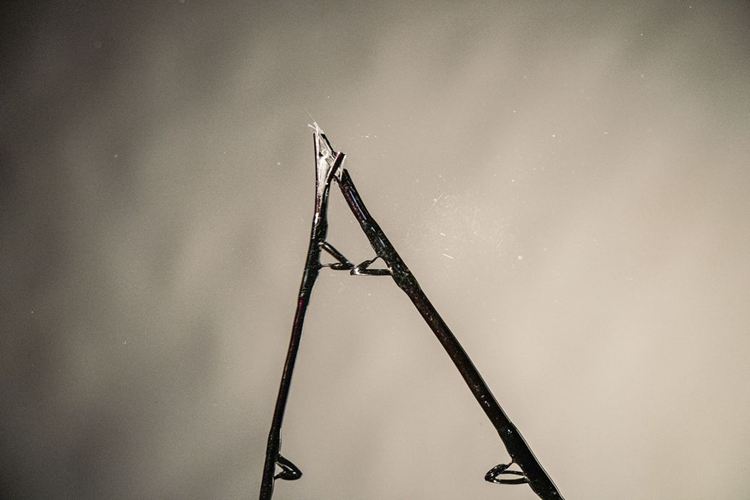
One of the dreaded things that can happen when you don’t store your fishing rod properly is that it might break! Accidents happen, your fishing rod isn’t invincible, too much pressure would definitely break it.
I am not saying it is impossible for your fishing rod to break even while in storage, however, there’s a lesser chance of it breaking while in its storage shelf or rack.
2. Protection From Wear & Tear
So, you got your fishing rod barely 6 months ago and it is looking like you have used it for 6 years?
Well, Wear & tear is almost inevitable, especially if you use your fishing rod regularly, however, with proper storage, you could use your gear for an extended period without having to worry about wear and tear.
You can’t possibly compare the lifespan of a fishing rod that was left in the rain to another that was properly stored. So, storing your fishing rod protects it from wear and tear “in a way.”
3. Save Room In Your Garage
Some fishing rods are quite long, while you may have a big garage and think that there’s enough room, not storing your fishing rod properly can leave you with less space for passage in your garage. Proper storage of your fishing rods will save a lot of space.
What To Do Before Storage?
I know how you feel, you have just had a long day and just want to know how best to store your fishing rod, but there’s more important information you need to know.
This section covers basic things that you need to do before storing your fishing rod. Doing this after fishing and before storage is the best treatment you can give to your fishing rod. Here’s what to do;
1. Clean The Rod And Reel
Moisture can cause rust and other damage to your fishing gear, ensure that you clean the rod and reel properly before storing it. Doing this regularly immediately after fishing will help prolong the lifespan of your fishing rod.
What you will need;
- Dry towel
- Spray bottle
- Fresh tap water.
How To;
- Add fresh water to a spray bottle, or a sprayer (use medium pressure if using a sprayer)
- Lightly midst the reel of your fishing rod.
- Continue spraying fresh water on the rod moving from the reel to the tip of the rod and back down.
- Shake off the fishing rod to get excess water out of it.
- Use the towel to dry the rod and reel completely.
2. Take Out The Hook
This is yet another important thing to do especially if you have kids or pets around. You do not want to leave the hook and bait on the fishing rod. Your dog might want to have a bite and that could be fatal.
Basically, hooks are dangerous, and you would want to take them out of your fishing rod before storage.
What you will need;
- Plier
How To;
- Simply use your plier to cut the line holding the fishing hook from the top.
- Untangle or untie the knot on the hook.
- Keep your fishing hook inside a box, seal it and store it in a safe place.
3. Retract The Fishing Line
If you are going to store your fishing rod for a very long time, you might want to retract the fishing line. This is very easy. After taking out the fishing hook, simply draw the line out from the guides and then reel in until the line is completely off the rod and on the reel.
How To Store A Fishing Rod - Types Of Fishing Rod Storage
You have waited this long for a good reason. All the steps above are very important things to do before storing your fishing rod. So, let’s assume that at this point you have cleaned your rod and reel and you have also taken out the hook and retracted the fishing line, it’s now time to store. I’ll show you how.
Indoor Storage
For this storage you have two options, the first is making a DIY fishing rod rack or buying one from an online store. The choice is up to you, however, If you wanted my advice I would say you should build your fishing rack storage, it is usually easy to do and cost-saving.
Indoor storage options for your fishing rods can be further categorized into horizontal storage and vertical storage. Based on your preference, you will have to decide which one works best for you.
Vertical Storage - KastKing Patented V15 Vertical Fishing Rod (Recommended)
This is a wall-mounted fishing rod rack that can be used to store up to 15 different fishing rods. It isn’t space-consuming and I love it. It is also very affordable. Using this product is easy, simply push the rod into the opening when you are ready to store, you’ll have to mount the rack to the wall first.
Horizontal Storage
You can get this storage rack in a store near you or online, the choice is yours. Horizontal storage racks are easy to build, you can see some DIY fishing rod plans in an earlier post we made. The good thing about a horizontal fishing rod rack is that it saves space that would have been used by a vertical fishing rod rack.
Ceiling Storage - Butizone Fishing Rod Rack
Another option is storing your rack on the ceiling, this should only be done in a place like your garage where you have enough ceiling space to explore. You can also choose to go the DIY way with ceiling storage. The choice is yours.
Outdoor Storage
Is it a good idea? No! Storing a fishing rod outdoors in a shed or in a garage can oftentimes not be a smart decision due to the fact that in most cases a fishing rod is a very expensive piece of equipment.
It is advisable to leave your fishing rods inside your home or garage when they are not being used. If you have an RV or car that is long enough to store your rack, then fine. however, DON’T STORE IT ON THE ROOF!
Want my advice? Store them in your home, where there is a slim chance of dust or other hazards destroying them. This is the best way you can ensure that your fishing rods will be kept free from dirt and possible damage from elements or insects."
How To Store Your Fishing Rod In Your Car
You don’t have a garage and you prefer living your days in an RV or camper? That’s fantastic, if this is your case, then none of the storage options above would work for you, you would have to make an RV rack for your car.
Forget about the roof, the only time you should place your fishing rod on the roof of your car is when you are 100% certain that it isn’t going to rain and you’d be taking it off the roof for use pretty soon.
Here’s a quick tutorial that’ll show you how to install a bungee cord fishing rod holder in your SUV.
Other Important Storage Tips
- Avoid too much exposure to sunlight.
- Do not allow rainwater to soak your fishing rod.
- Use a fishing rod waterproof bag if you must store it on the roof of your car.
- Do not forget to dry your fishing rod with a dry towel after giving it a freshwater wash.
- While storing the rod ensure that the tip is facing up. (not applicable for ceiling and vertical storage options).
- Store your fishing rod in a dry place.
- Do not use detergents or any other products to clean your fishing rod, only freshwater would do.
Final Advice
It is one thing to know how to cast a fishing rod and another thing to know how to store it after a good day of fishing. We have tried to cover all the basics of storing a fishing rod. If you apply the storage options and tips in this guide, your fishing rod should last for a couple of years without the need for a replacement.
If this guide has been helpful to you, do us a quick favor by sharing it with your friends and family that might be interested in reading a piece like this. Thanks for stopping by.

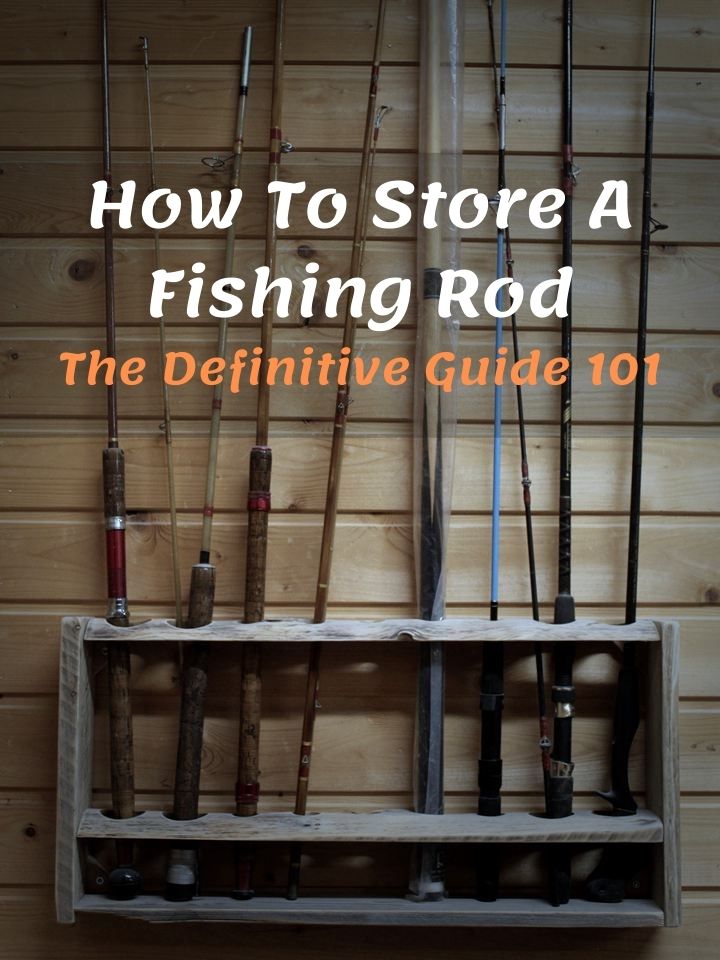
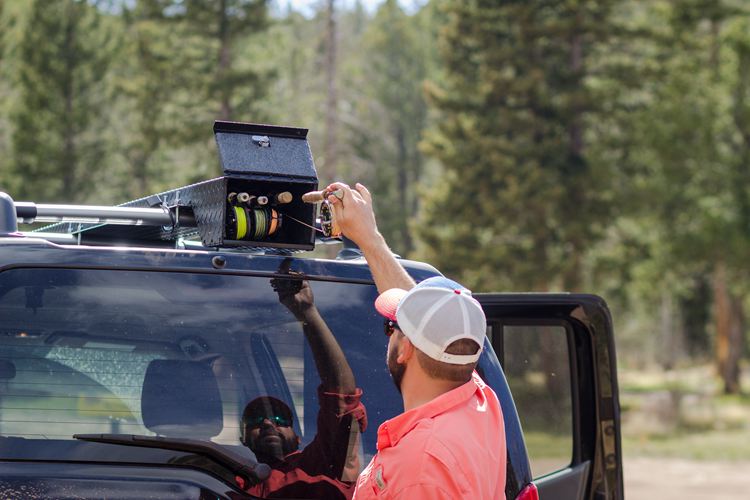

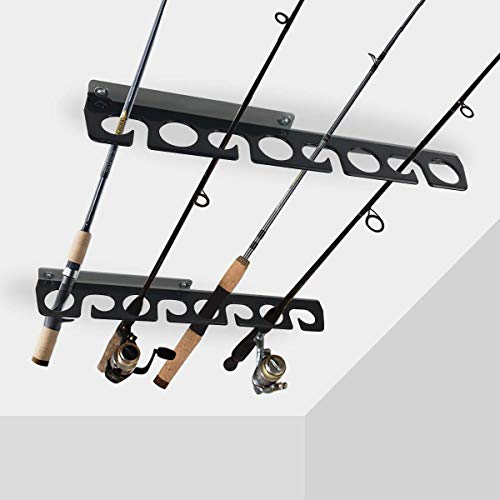
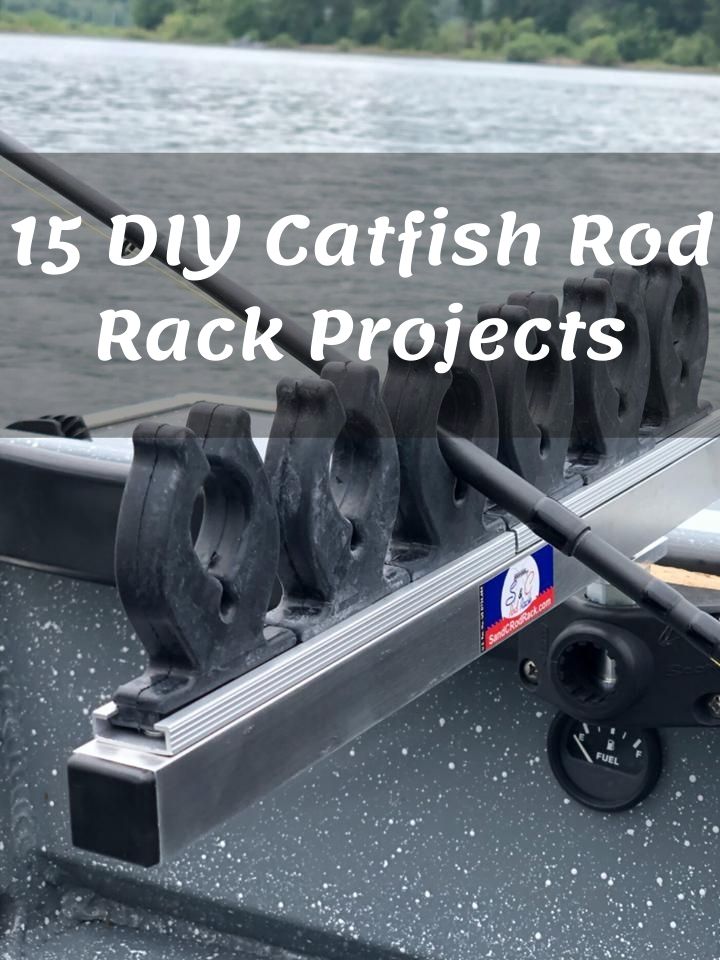
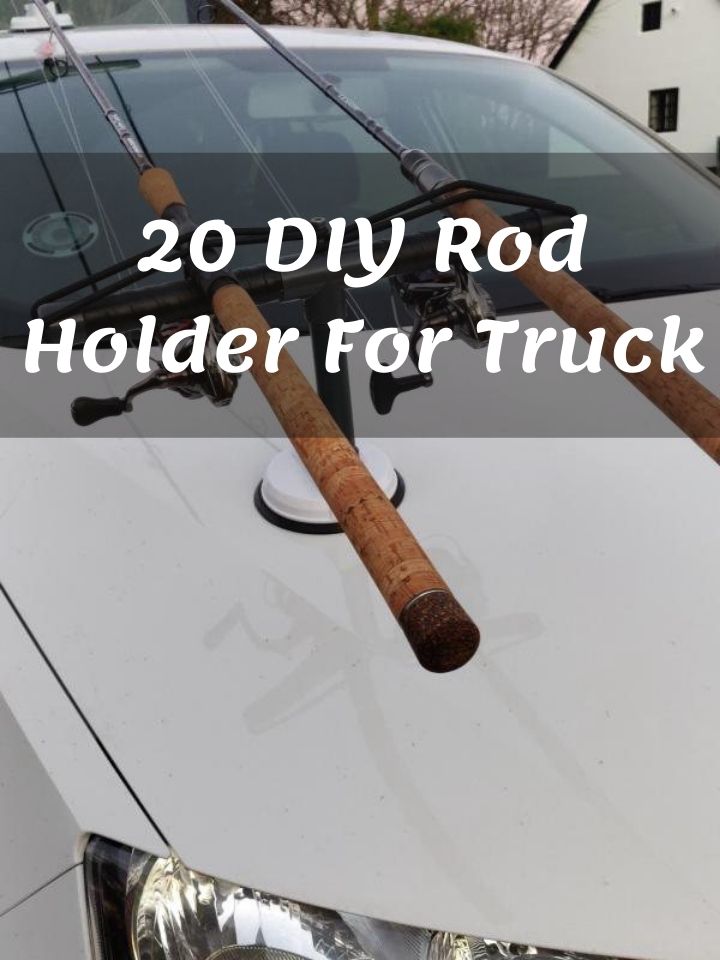
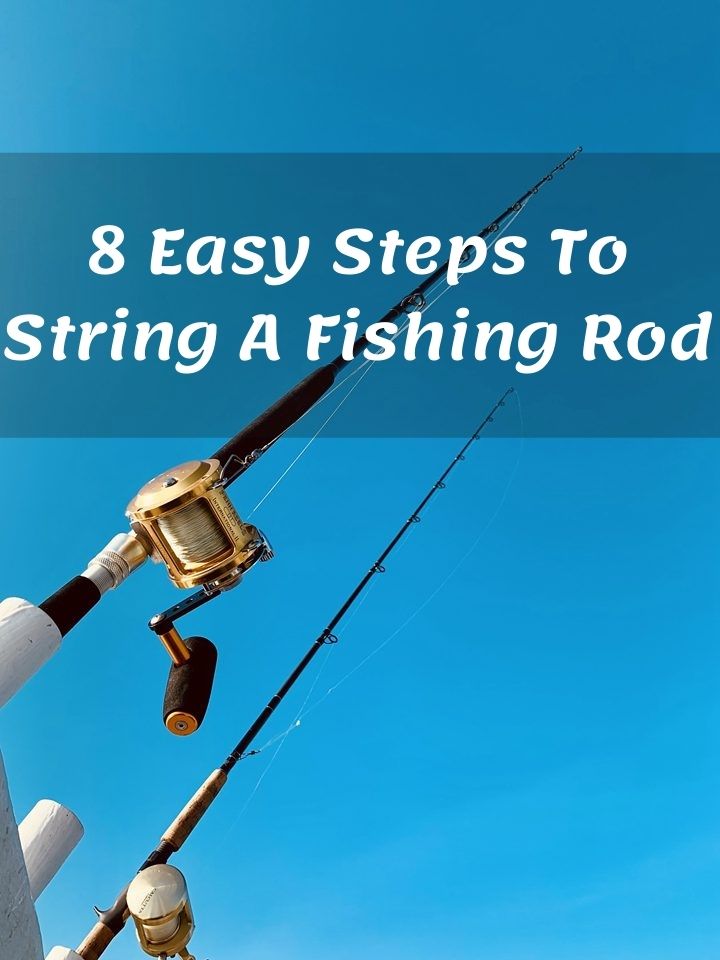
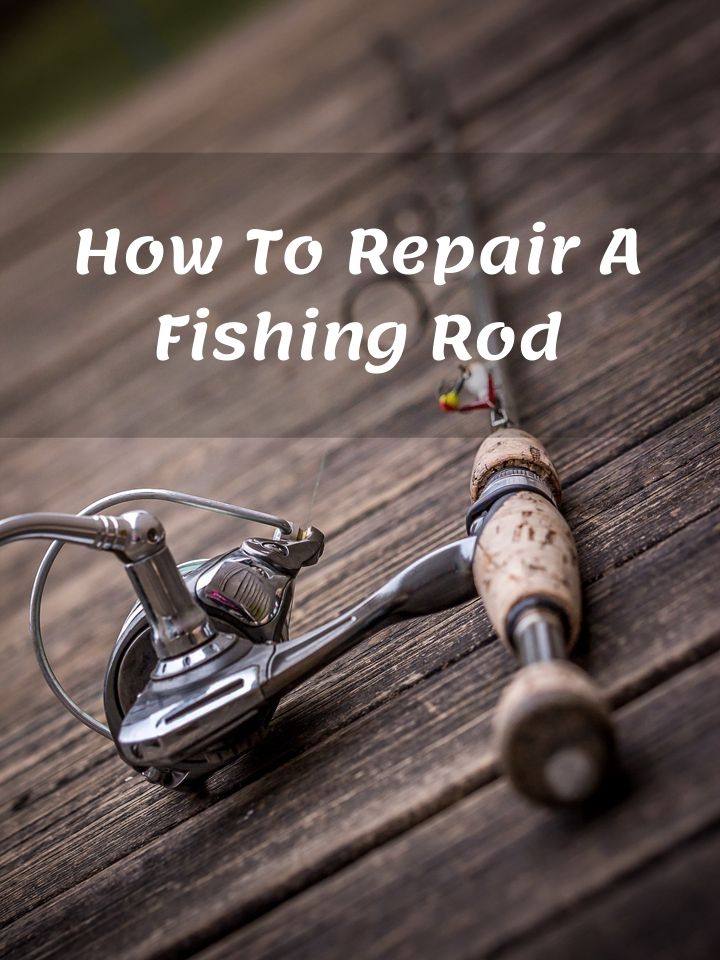
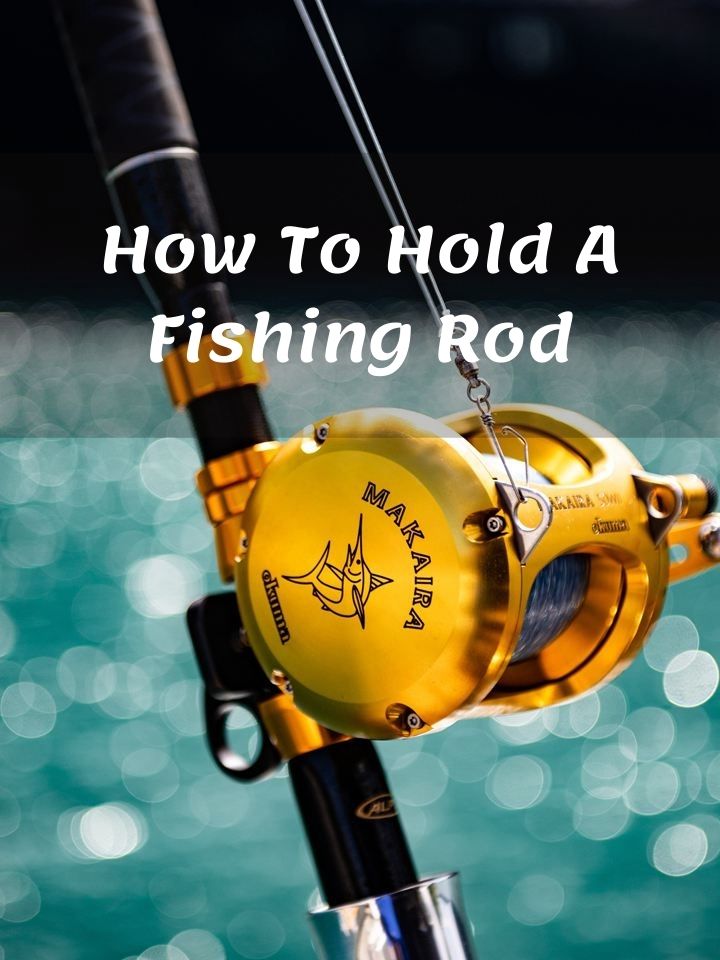
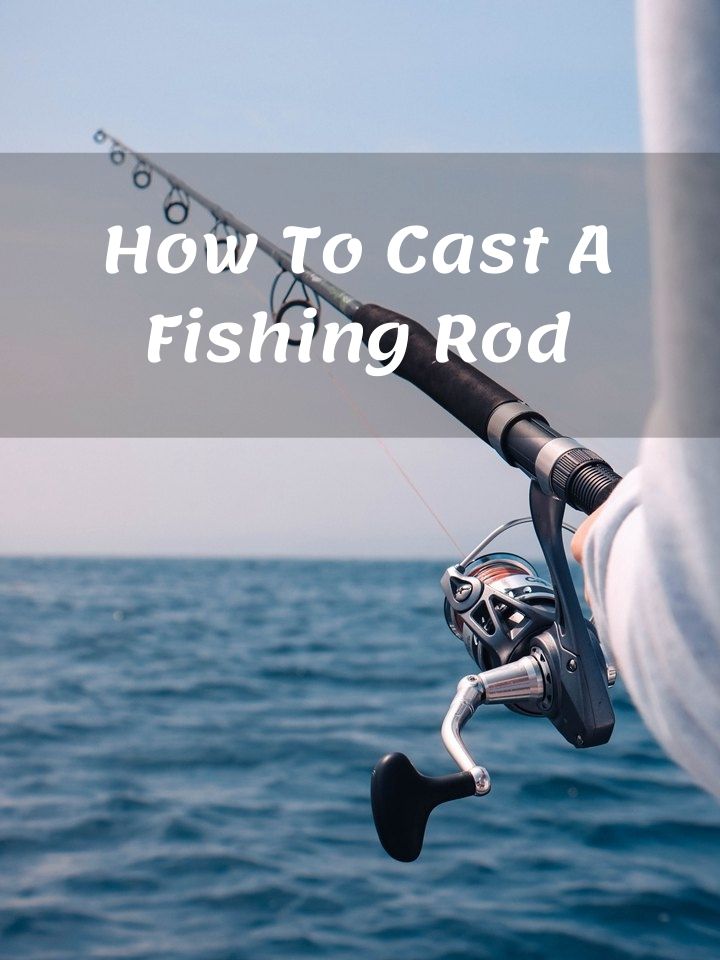
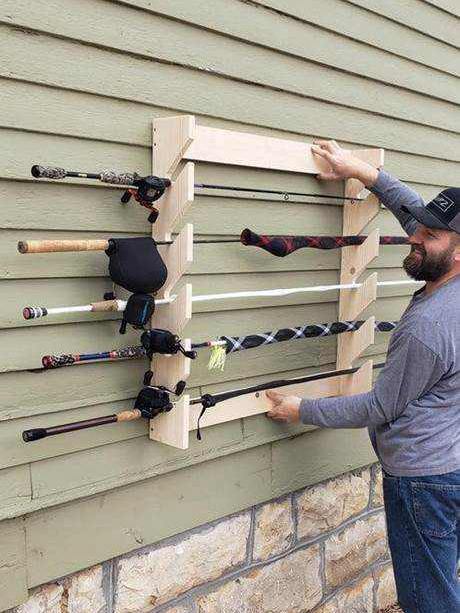

Ask Me Anything